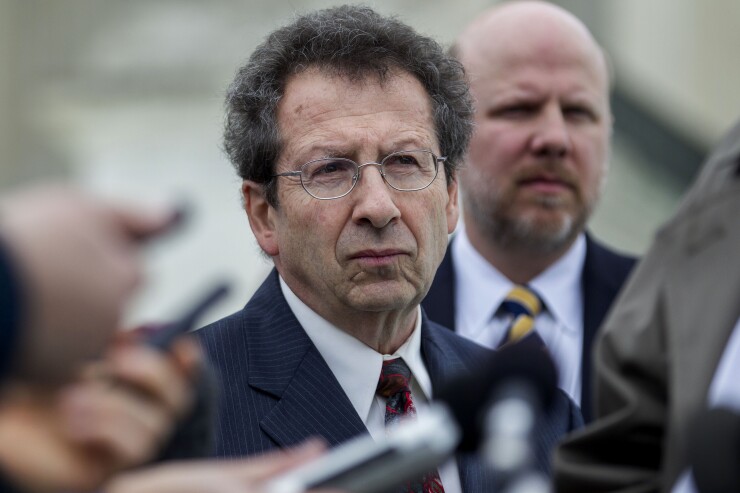A conservative think tank has sent a letter to the U.S. Securities and Exchange Commission asking the agency to investigate California cities for downplaying climate change risks in bond documents while citing the risks in lawsuits against oil companies.
The letter, from the "
Several California cities had sued for damages to pay for infrastructure to prevent flooding from rising sea levels they say will result from climate change.

CEI says the SEC should investigate whether alleged contradictions between the municipalities’ bond documents and their lawsuits against oil companies could equal securities fraud.
CEI sent the
“We have been involved in the general issue of global warming for several decades,” said CEI’s general counsel Sam Kazman. “Once these counties filed against the oil and gas companies, we did a little digging into Exxon’s lawsuits. If the cities are serious about the charges, they should be making similar statements in their bond offerings.”
For example, in their lawsuits many of the municipalities claim to be able to accurately be able to predict sea level rise caused by climate change, but some of the bond offerings of these municipalities state that such predictions were not possible, CEI writes in the letter.
John Cote, a spokesman for San Francisco City Attorney Dennis Herrera,
ExxonMobil argued in its lawsuit that if what the cities and counties allege in the lawsuits is true, they have committed securities fraud for failure to disclose. Conversely, the argument goes, if the language in the bond documents was true, then the lawsuits against the oil companies are frivolous.
San Francisco and Oakland filed lawsuits in state superior courts in San Francisco and Alameda counties Sept. 20 seeking billions of dollars in damages to pay for infrastructure to protect coastal cities from potential damages caused by rising sea levels. The cities, Santa Cruz County, Santa Cruz, San Mateo County, the city of Imperial Beach and Marin County were also named in ExxonMobil’s lawsuit.
Scientists have linked rising sea levels and warming global temperatures to the burning of fossil fuels.
An excerpt from an San Francisco bond document cited in the countersuit says the city is “unable to predict” when natural events such as sea rise or other impact of climate change such as flooding may occur or “whether they will have a material adverse effect on the business operations or financial condition of the city or the local economy.”
In the lawsuit brought by the cities, attorneys argue that San Francisco's plans to fortify the seawall will cost upward of $500 million for short-term upgrades.
The governments' lawsuits against Exxon and 17 other energy companies argue that the companies knew or should have known about the potential impacts of burning fossil fuels, but instead have made efforts to discredit the science behind global warming.
CEI has not received a response from the SEC to its letter, Kazman said.
"I would like the SEC to announce an investigation, solicit comments from the public as to where else this might have happened and take a good hard look at it," Kazman said.





